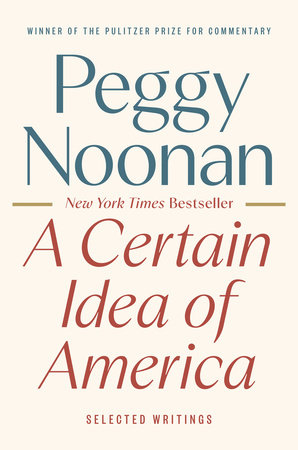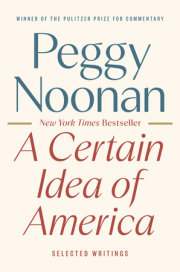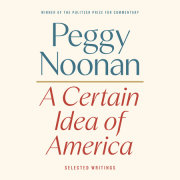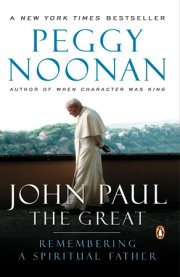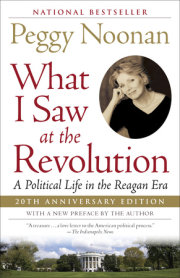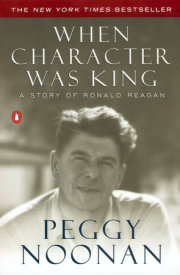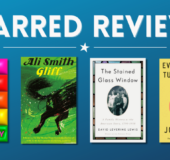Chapter 1
Let Us Now
Praise Famous Men
On great figures and artists,
most, but not all, of the twentieth century.
Billy Graham, the Ecumenical Evangelist
February 22, 2018
You know the miraculous life of Louis Zamperini, whose story was told in Laura Hillenbrand's epic, lovely book, Unbroken. Louis was the delinquent, knockabout son of Italian immigrants in Torrance, California, who went on to run for America in the 1936 Berlin Olympics, then joined the Army Air Corps before Pearl Harbor. He crashed in the Pacific, drifted in a raft on open sea for forty-seven days, came near death-shark attacks, storms, strafing by Japanese bombers-and survived, only to be captured by enemy troops. He spent two years in Japanese prison camps-beaten, tortured, brutalized as much as a person can be and still live.
He came back a hero, shocked to be alive. But his life went from rise to descent-rage, alcoholism, destruction. He couldn't focus enough to make a living, couldn't stop the downhill slide. His wife, Cynthia, announced she was leaving. One day a neighbor told them of something going on in town, in L.A. An evangelist named Billy Graham had set up a tent and invited the public. Cynthia grabbed at the straw, but Louie refused. He wasn't going to watch some con man screaming. Cynthia argued for days and finally fibbed. Billy Graham, she said, talks a lot about science. Louie liked science. So he went, grudgingly, and they sat in the back. The following quotes are from Unbroken.
This is what Billy Graham looked like: "His remarkably tall blond hair fluttered on the summit of a remarkably tall head, which in turn topped a remarkably tall body. He had a direct gaze" and "a southern sway in his voice." Studio chiefs saw a leading man and offered him a movie contract. Graham laughed and said he wouldn't do it for a million a month. He was thirty-one and had been traveling the world for years.
This is what he hid: He was wearing out. "For many hours a day, seven days a week, he preached to vast throngs, and each sermon was a workout, delivered in a booming voice, punctuated with broad gestures of the hands, arms, body. He got up as early as five, and he stayed in the tent late into the night, counseling troubled souls." His weight dropped and there were circles under his eyes. "At times he felt that if he stopped moving his legs would buckle, so he took to pacing his pulpit to keep himself from keeling over."
It cost him to be Billy Graham. He wanted to end his crusades, but their success convinced him "Providence had other wishes."
This is what Billy Graham was not like: Elmer Gantry. Louie expected "the sort of frothy, holy-rolling charlatan that he'd seen preaching near Torrance when he was a boy. What he saw instead was a brisk, neatly groomed man two years younger than himself." This man was . . . serious. "He asked his listeners to open their Bibles to the eighth chapter of John."
This is what Billy Graham said: "Here tonight, there's a drowning man, a drowning woman . . . a drowning boy, a drowning girl that is lost in the sea of life."
He spoke of the Pharisees surrounding Jesus that day in the temple and presenting the woman taken in adultery. Moses in the law commanded us, they said, that she should be stoned. What say you? Jesus stooped down and wrote with his finger on the ground, as if he hadn't heard. They pressed; he wrote. He lifted himself and said, "Let him who is without sin cast the first stone." They were convicted by their own conscience and left. Jesus, alone with the woman, asked, "Has no one condemned thee?" No man, she said. He said, "Neither do I condemn thee. Go now and sin no more."
But what was Jesus writing on the ground? Graham suggested Christ was enacting the writing of the facts of our individual lives: "God takes down your life from the time you were born to the time you die." He will see the truth. "You're going to say, 'Lord, I wasn't such a bad fellow.'"
Louie felt something tighten. He felt "a lurking, nameless uneasiness," like "the shudder of sharks rasping their backs along the bottom of the raft."
And so began his conversion. He went on to a life of greatness, helping boys as lost as he'd once been.
That is the importance of Billy Graham. We talk about the "friend of presidents" who "moved among the powerful," but he was a man who wanted to help you save your soul whoever you were, in whatever circumstance. And there would have been millions.
"Louis wasn't the only one in the tent," Laura Hillenbrand said this week, by phone: "Without Reverend Graham, Louie would not have lived."
"What reached into Louis's soul," she added, "was Graham's ability to reach into the individual, the person in front of him-of God being interested in him personally." Louis had to come to terms with two huge things, the mystery of his suffering (why did this injustice happen?) and the mystery of his survival (so many others are gone). But you didn't have to float on a raft and be tortured to suffer: "Everyone suffers. Louis was no different from anyone else in the tent that night."
He's still no different from anyone else in the tent.
Here I want to say, I think there was something different and special going on between Catholics and Billy Graham. They saw, as Louis Zamperini, raised Catholic, saw, his earnestness, his confidence in his message. They saw him swimming against the modern tide, as they often felt they were. And maybe they looked and imagined the cost.
I asked the archbishop of Philadelphia, Charles Chaput, if he saw this also. He emailed back: "When I was growing up, back in the 1950s, relations between Catholics and Protestants were still wary." But Catholic families "felt that Billy Graham was the Protestant preacher they could feel a real kinship with. He had the ability to reach across all the fractures in Christianity and speak to the common believing heart." Archbishop Chaput compared him to C. S. Lewis. "In a sense, he spoke the same kind of 'mere' Christianity that Lewis did so well, but with an American accent."
As the big thing to be desired now is that we hold together as a nation and not split apart, Graham's ecumenical force should be noted among his achievements.
Throughout his life Billy Graham had an air of "I'm not important, God is important." It didn't seem like a line but a conviction. He said once, "I am not going to Heaven because I have preached to great crowds. . . . I am going to Heaven just like the thief on the cross who said in that last moment, 'Lord, remember me.'"
And Christ said, "This day you will be with me in Paradise."
Graham's son asked what he wanted on his gravestone. He thought and said, "Preacher."
Since Wednesday morning one of his quotes was all over social media: "Someday you will read or hear that Billy Graham is dead. Don't you believe a word of it. I shall be more alive than I am now. I will just have changed my address. I will have gone into the presence of God."
Rest in peace, American preacher man.
The Wisdom of Oscar Hammerstein
March 29, 2018
Let's unfurrow the brow and look at something elevated. It's a small thing, a half-hour television interview from sixty years ago, but it struck me this week as a kind of master class in how to be a public figure and how to talk about what matters. In our polarized moment it functions as both template and example.
In March 1958, the fierce young journalist Mike Wallace-already famous for opening an interview with the restaurateur Toots Shor by asking, "Toots, why do people call you a slob?"-decided to bore in on Oscar Hammerstein II. (For the record, Shor responded that Wallace had him confused with Jackie Gleason.) Hammerstein was the fabled lyricist and librettist who with composer Richard Rodgers put jewels in the crown of American musical theater-Oklahoma!, South Pacific, The King and I, and Carousel, whose latest Broadway revival is about to open. He was a hero of American culture and a famous success in a nation that worshiped success.
Wallace was respectful but direct and probing. He asked Hammerstein if critics who'd called his work sentimental didn't have a point.
Hammerstein said his critics were talented, loved the theater, and there was something to what they'd said. But he spoke of sentiment "in contradistinction to sophistication": "The sophisticate is a man who thinks he can swim better than he can and sometimes drowns himself. He thinks he can drive better than he really can and sometimes causes great smashups. So, in my book there's nothing wrong with sentiment because the things we're sentimental about are the fundamental things in life: the birth of a child, the death of a child or of anybody, falling in love. I couldn't be anything but sentimental about these basic things."
What, Wallace asked, was Hammerstein's message in South Pacific?
Hammerstein said neither he nor Rodgers had ever gone looking for vehicles by which to deliver messages. They were attracted to great stories and wanted to tell them onstage. But "when a writer writes anything about anything at all, he gives himself away." He inevitably exposes his beliefs and hopes. The love stories in South Pacific were shaped by questions of race. The main characters learned that "all this prejudice that we have is something that fades away in the face of something that's really important." That thing is love.
Does this reflect his views on interracial marriage?
Hammerstein, simply: "Yes."
The King and I, he said, is about cultural differences. The Welsh governess and the Siamese children know nothing of each other at the start: "There again, all race and color had faded in their getting to know and love each other." On the other hand, Allegro, about disillusionment and professional achievement, carries a warning: "After you're successful, whether you be a doctor or a lawyer or a librettist, there is a conspiracy that goes on in which you join-a conspiracy of the world to render you less effective by bestowing honors on you and taking you away from the job of curing people, or of pleading cases, or writing libretti and . . . putting you on committees." He added he was "a fine one to talk": he couldn't stop joining committees.
Is he religious? Here Hammerstein told a story. A year ago he was rushing to work and jaywalked. A policeman called out; Hammerstein braced for a dressing down. But the officer recognized him and poured out his appreciation for his work. Hammerstein thanked him and moved to leave, but the policeman had a question. "He said, 'Are you religious?' And I said, 'Well, I don't belong to any church,' and then he patted me on the back and he said, 'Ah, you're religious all right.' And I went on feeling as if I'd been caught, and feeling that I was religious. He had discovered from the words of my songs that I had faith-faith in mankind, faith that there was something more powerful than mankind behind it all, and faith that in the long run good triumphs over evil. If that's religion, I'm religious, and it is my definition of religion."
Then to politics.
Wallace: "You are an active liberal."
Hammerstein: "Yes, I guess I am."
What connection does this have with your work?
"I think it must have a connection, because it expresses my feelings, my tendencies," Hammerstein said. "As I've said before, a writer gives himself away if he's writing honestly."
Wallace: "Would you agree that most of our writers and directors on Broadway and television in Hollywood are liberal and that there is a liberal complexion to their work?"
"I think I would, yes," Hammerstein replied, honestly and with no defensiveness.
Wallace's office had just spoken to "a militant dissenter" from liberalism, Ayn Rand, author of the recently published novel Atlas Shrugged. She said, "The public is being brainwashed by the so-called liberal or leftist philosophies, which have a stranglehold on the dissemination of ideas in America." How did Hammerstein respond?
He didn't like her adding the word "leftist," "because you can be a liberal without being a leftist, and many and most liberals are." Beyond that, her criticism was an example of what's working. "I think it's fine that there is a Miss Rand who comes out stoutly for the conservative. I think it's fine that we have all kinds of thinkers in the world. . . . I admit that the majority of writers in this country are on the liberal side."
But he added, of Rand, "We need her to hold us back, and I think she needs us to pull her forward."
Italics mine. Because liberals and conservatives do need each other, and the right course can sometimes be found in the tug between them.
Wallace: "The public does rarely get anything but a liberal viewpoint from Hollywood or from television, from Broadway," and the charge can be "safely made that there is a certain intolerance of conservative ideas among liberals."
Hammerstein, again undefensive: "I think so, too."
What's to be done about it? Nothing, said Hammerstein: "Just be yourself, that's all." If the public likes Miss Rand, "there will be a Miss Rand trend." Let the problem work its way out in a free country.
Hammerstein said he tries sometimes to vote Republican "just for the sake of switching-just for the sake of telling myself I'm not a party man," which he doesn't want to be. "But somehow or other I always wind up voting Democratic." Balancing the budget bores him. "I have an idea that the more liberal Democratic tendency-to borrow and owe money is healthier for us." Most big corporations borrow, and they make progress with the money. When the U.S. borrows money, Hammerstein said, he felt "the people in the lower income bracket get the most out of it. But I'm no economist-this is merely a guess."
We're all guessing, and working on instinct and experience. Moral modesty and candor are good to see.
In our public figures, especially our political ones, they are hard to find. I offer Hammerstein's old words as an example-a prompter-of what they sound like.
The Mystery and Grace of Paul Simon
March 28, 2024
Easter’s coming, Holy Week’s here, and Passover is a few weeks away, so it’s a good time to look at the work of a great artist who’s brought considerable beauty into the world, Paul Simon. Alex Gibney’s two-part MGM+ documentary on the making of his most recent album is also beautiful-moving, mellow, sweet, and deep. It tells of Mr. Simon’s life and touches on three big themes-the nature of creativity and where it comes from; that tricky thing called a career, which carries a talent forward into the world and keeps it there, or not; and, centrally, an ongoing spiritual event in Mr. Simon’s life that sounds like an ongoing miracle, or at least has pronounced supernatural aspects.
Copyright © 2024 by Peggy Noonan. All rights reserved. No part of this excerpt may be reproduced or reprinted without permission in writing from the publisher.

